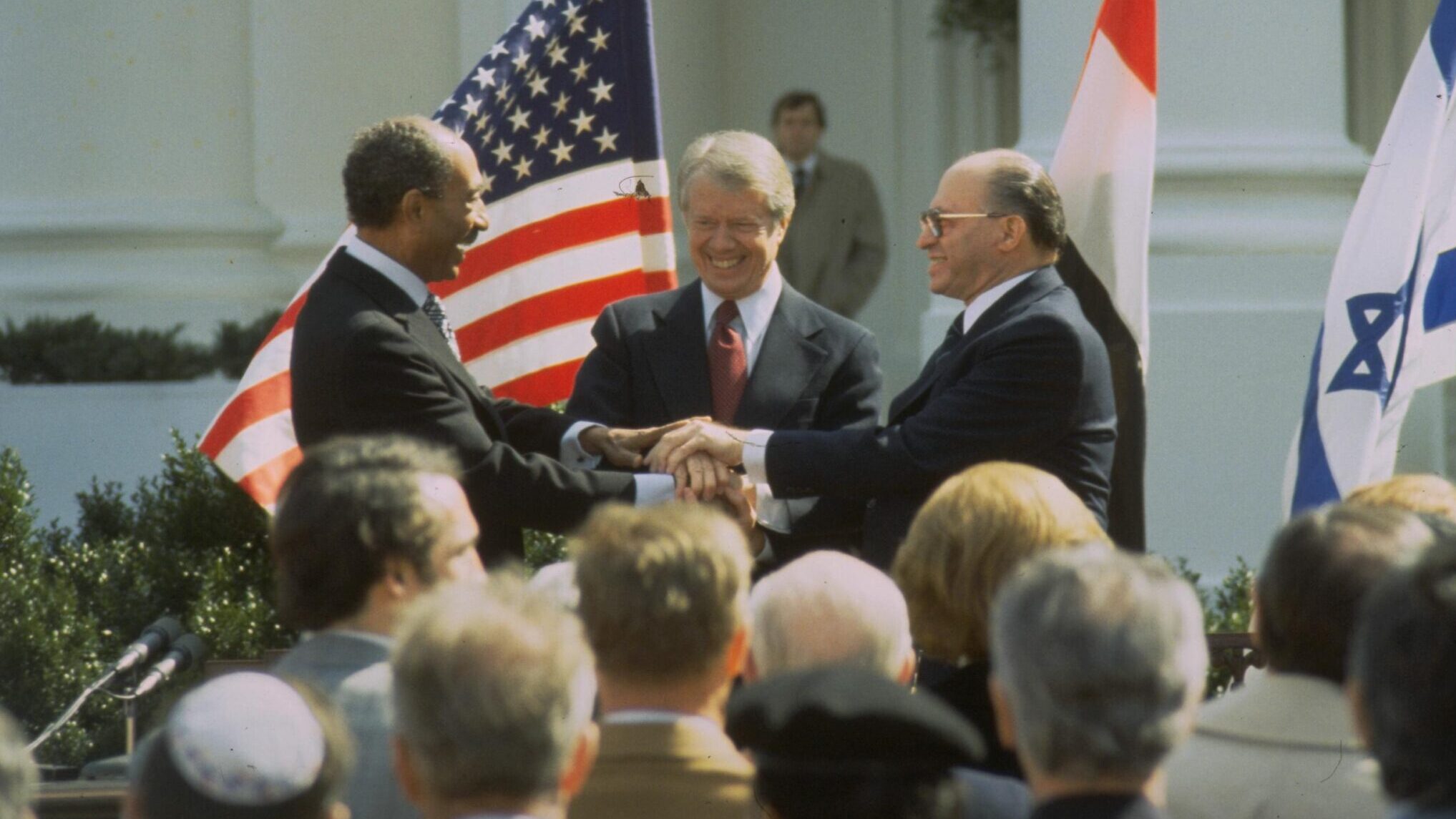What Does Peace With Israel Mean?
Okaz, Saudi Arabia, June 15
Despite the four-decade-old peace treaty between Egypt and Israel, an Egyptian soldier opened fire on Israeli soldiers, killing three and injuring several others. Upon investigation, it was revealed that the perpetrator was only in his early 20s. Responses on social media quickly praised the young man as a national hero, from the Mediterranean to the Persian Gulf, demonstrating the underlying tensions inherent to any peace treaty between Israel and an Arab country. Neither leadership has publicly addressed the real reason for the attack, yet it’s clearly understood by all parties. The fundamental question that goes unasked at each peace treaty between Arabs and Israelis is: What is peace with Israel? Is coexistence with Israel comparable to that of other countries like Iran, Zimbabwe, or Korea? To date, Israel has repeatedly resisted and refused to discuss peace initiatives put forward by the Arab world that consisted of a solution to the Palestinian problem. Despite efforts to form peace with other Arab nations unilaterally, it seems that Israel only wishes to maintain diplomatic relations with these governments, not their people. This prompts another query: is Israel a state without a people, seeking peace between governments instead of between people? Ultimately, peace among nations must be achieved between the peoples and concluded by governments to address political, not existential, issues. Many of us did not reflect much on the concept of “peace” given its obviousness. Certain Arab countries have normalized relations with Israel, established diplomatic ties with it, and opened mutual embassies. But one must ask: has peace truly come between the peoples of these countries and the people of Israel in its obvious sense? Could it be that one day will come when Israel could rid itself of its robust military forces and become self-sufficient in the region? In other words, can Israel ever become a normal country in the Middle East? What are the shared natural aspects that could make Israel part of the region? Does the phrase ” Middle East” hold any cultural connotations that could unite peoples, and what is the cultural foundation that could allow for coexistence between the peoples of the Middle East and Israel? The Arab world stretches from the Persian Gulf to the Atlantic Ocean and encompasses many political entities yet binds together a single cultural bloc. This powerful shared cultural identity is evidenced in the likenesses of their language, faith, history, literature, customs, traditions, and aspirations. Commonplace occurrences such as the book fairs of Beirut, Cairo, Medina, Riyadh, Kuwait, Marrakesh, Amman, Sharjah, and Abu Dhabi display similar authors, while musical compositions from Damascus evoke joy in the people of Iraq, Lebanon, Yemen, the Gulf, Palestine. A fatwa issued in Cairo resonates throughout the entire region. These undeniable similarities demonstrate the unified culture of the Arab world. What is the implication of this truer understanding of the region? Israel realizes that peace with the Arab peoples is not a natural state of affairs but rather one that must be brought about through normalization. Ariel Sharon once declared that while the Arabs had accepted Israel’s power, they had not accepted its right to exist. Consequently, Israel seeks to obtain a peace imposed by American influence on Arab governments which will then enable it to exist in a world with which it is otherwise unconnected. It is like transferring a herd of camels to the Arctic, providing them with a tight reserve in which to live, severing any relationship with the outside world. As long as the camels are provided with appropriate protection, they can survive, although they must remain within their dedicated reserve until they are either repatriated or transformed into penguins. —Abdullah Bin Bakheet (translated by Asaf Zilberfarb)


